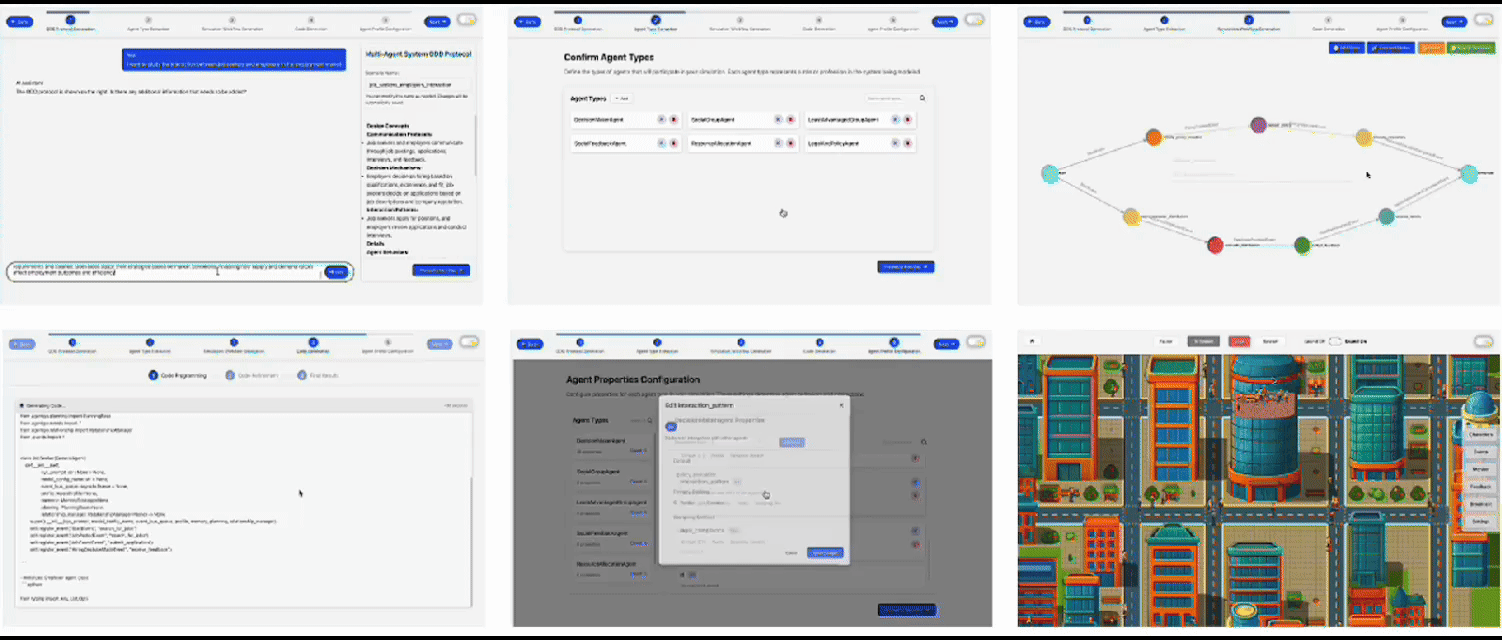What is YuLan-OneSim
YuLan-OneSim (玉兰-万象) is a groundbreaking social simulator that leverages Large Language Model (LLM) agents to model human social behaviors. Our framework bridges the gap between social science and artificial intelligence by offering a powerful, user-friendly platform for research and exploration.

Core Value Proposition
YuLan-OneSim represents the next generation of social simulation platforms, designed to make complex social research accessible, scalable, and scientifically rigorous. Unlike traditional simulation tools, our platform harnesses the power of Large Language Models to create intelligent agents capable of realistic human-like interactions and decision-making.
What Makes YuLan-OneSim Special
YuLan-OneSim stands out as a next-generation social simulation platform driven by Large Language Models (LLMs). Here's what makes it truly special:
🔄 Code-free scenario construction
Design complex simulations through natural language conversations—no programming required. The system automatically formalizes the input, builds agent behavior graphs, and generates executable code.
📚 Comprehensive default scenarios
50+ default scenarios across 8 major social science domains (e.g., economics, sociology, politics, psychology, communication), offering out-of-the-box simulations grounded in well-established social science theories.
🧠 Evolvable simulation
Models that automatically improve based on external feedback. Powered by the Verifier–Reasoner–Refiner–Tuner (VR²T) framework, YuLan-OneSim can incorporate feedback from users or automated validators to improve its underlying LLMs over time.
🚀 Large-scale simulation
Distributed architecture supporting up to 100,000 agents with an event-driven architecture, it can simulate complex, dynamic societies at scale—mirroring real-world complexity far better than traditional rule-based simulators.
🔍 AI social researcher
Autonomous research from topic proposal to report generation. You provide a research question, and the system automatically handles experiment design, scenario building, simulation execution, result analysis, and technical report writing.
Getting Started
Ready to explore the possibilities? Start with our Getting Started Guide to set up your first simulation in minutes.